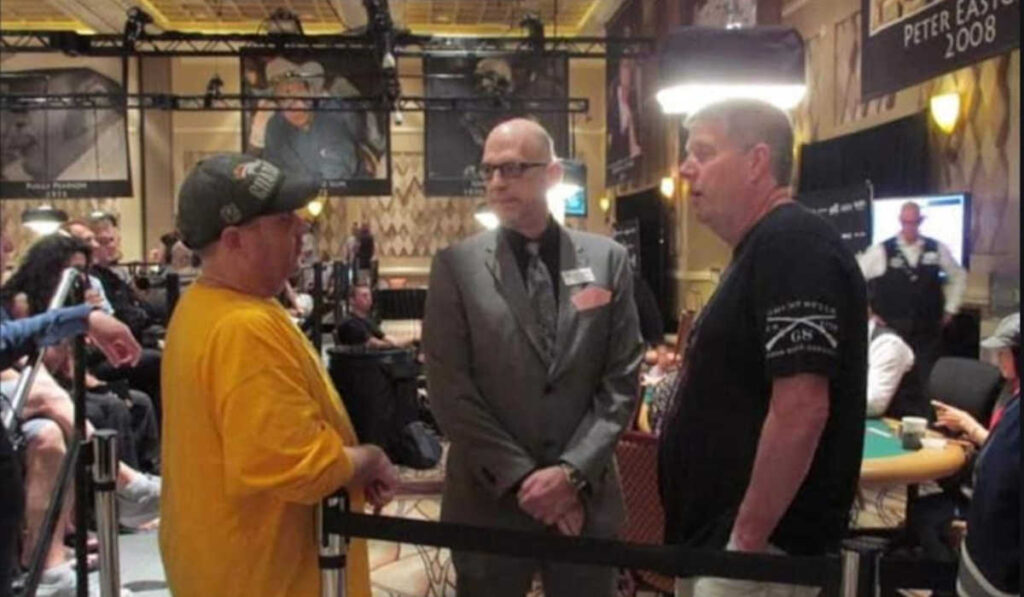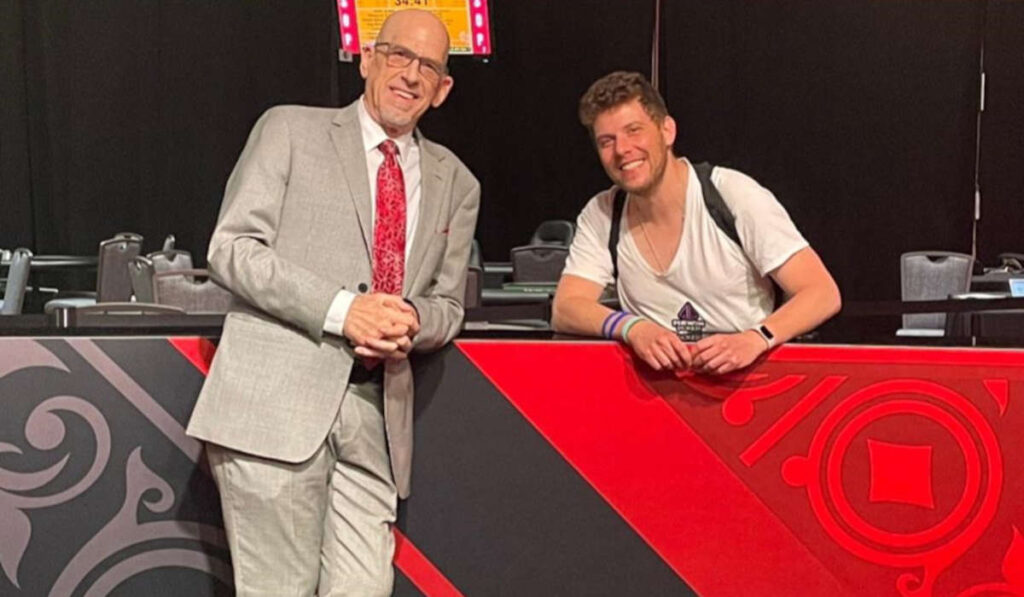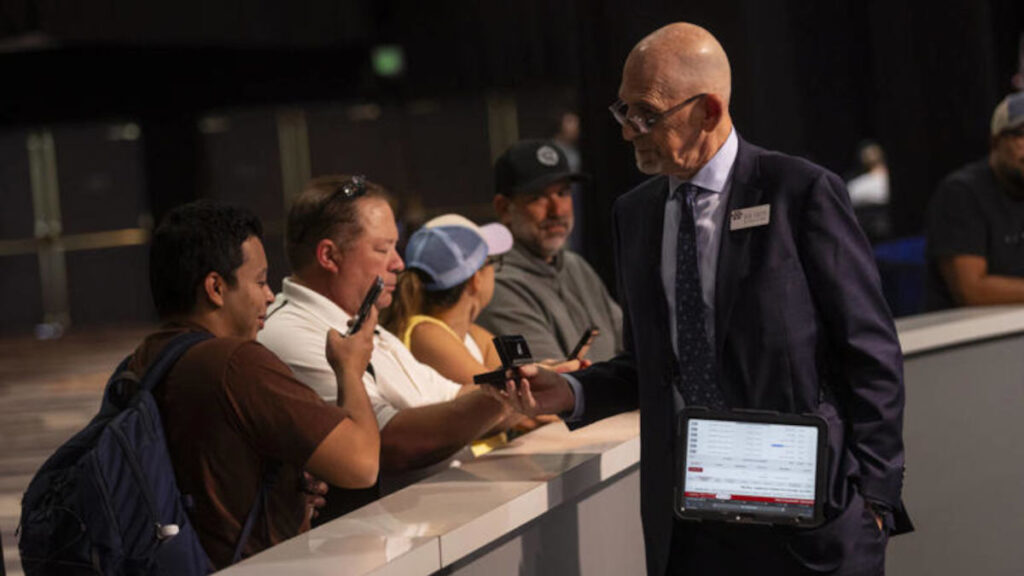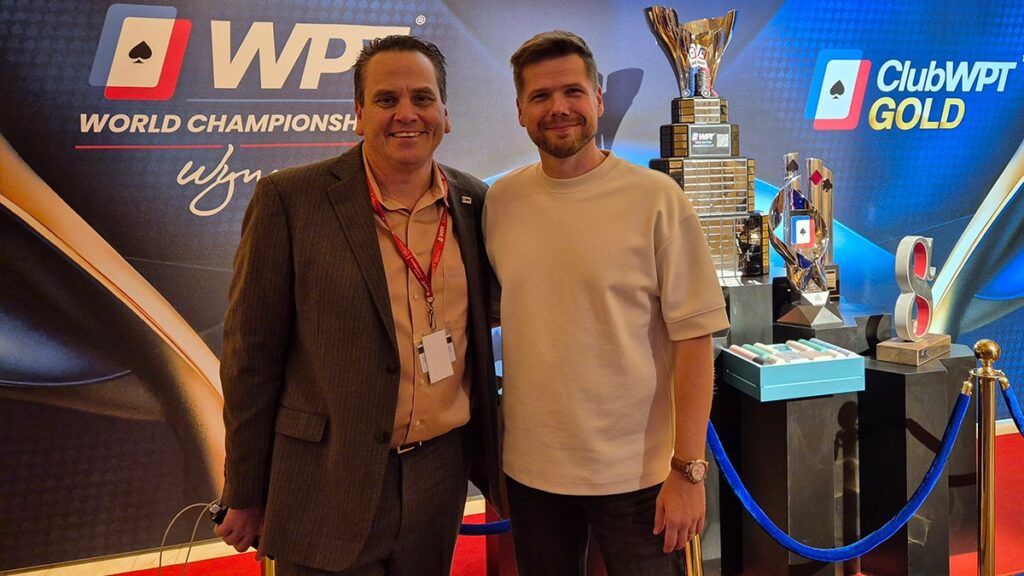Image courtesy of Las Vegas Review Journal
Every summer, thousands of poker players descend upon Las Vegas to attend the biggest poker festival in the world, The World Series of Poker.
They are all hoping to capture a World Series of Poker bracelet and everything that comes with it, including the big money first-place prize and the prestige of being able to call yourself a bracelet winner.
At the center of that chaos for the last 20 years is a man who has been a constant, steadfast presence – floorman Bob Smith. This summer, the WSOP celebrated “Bob Smith Day,” a nod to his two decades of service.
Good Omen for the Players
Bob has run tournaments all over the world, from EPTs to WPTs to Irish Open events. If you’re a player and you see Bob in your tournament area, it means you have a better shot at winning than most.
I’m part of the restart crew. If you get to us, it means you’ve been playing multiple days, and most of the field has been eliminated already. We’re a very tight-knit unit, and none of the other crews do what we do, which is take over deep into the tournament, and run it all the way down to the final table, and then from the final to awarding the bracelet.”
Bob added, “We handle all the big color-ups, and there’s a lot of pressure on us because if we make a mistake, it’s national news.”
Overcoming Hardships
A native of Northern California, Bob’s landing at the pinnacle of poker flooring was not something he envisioned early on. He grew up playing baseball, but shattered his hip when he was 13 years old.
That’s when the limp you see now started. Back then, in order to fix it, they took existing bone and basically remade the hip. They said it would last ten years, but it lasted 50.
In May of 2024, when the time finally came for a replacement, Bob’s insurance company balked at the last minute and refused to cover the surgery.
Luckily, the beloved floorman had the support of the poker community he had so long served, and they rallied to raise the necessary funds in a single day.
After finishing high school, Bob attended the College of San Mateo, transferring from there to USF, where he began a career as a book seller for Books Inc. Bob mentions that although he was a regular nine-to-fiver, poker has always been a part of his life.
Growing up, my dad had a monthly quarter-ante game he played with his friends, and when I got older, I ran a small four-table tournament at my house twice a week.
This led Bob from selling books to working at the former River Club Card Room in Petaluma, CA, where he helped run tournaments and worked as a prop player.

However, one fateful day would change his life and career path forever.
My boss at the River Club came up to me and said I have to lay you off. You’re the only one here without kids or a family, and besides, you’re making more money playing poker than you are working anyway.
But his troubles didn’t stop there. That same day, Bob would get into a relationship-ending argument with his girlfriend, and an incense mishap burned his apartment to the ground, leaving him with zero possessions other than the load of laundry that was still in the washing machine.
“It was a bad day,” laughs Bob.
Then, in a scene straight from the poker movie ‘Rounders,’ Bob’s brother (also a poker player) covered the deposit on his apartment and talked him into heading to Reno to play in their first WPT event. It was there that he met Sue Phillips, who was in charge of hiring dealers for the WSOP.
She said to me, Sit down at that table and deal a hand of Omaha.
Bob was offered a job on the spot.
The next week, I was at the circuit stop in Tahoe, and from there I went to the series.
Bob never looked back. Starting as a dealer and then a floorman in the single-table satellites section, he quickly moved into bracelet events and began making a name for himself.

Daily Challenges & Will Kassouf Controversy
For Bob, his philosophy on what makes a good floorman is simple: “My goal, every day, is to run a tournament I want to play in.”
It’s a player-centric approach that comes from being a student of the game himself, and this care for the job is what earned him the recognition of his peers this summer.
“They’re my crew,” he says of the community of tournament directors and floor personnel. “I’ve traveled all over the country with those guys.”
But, of course, the job comes with its difficulties, as it’s also about maintaining order, a task that sometimes requires drawing a hard line. This summer, that meant making a headline-grabbing ruling against well-known pro Will Kassouf for excessive stalling.
He was manipulating time. It’s like he’s running a really good three-card monte scam, except he fills the space with words; it had nothing to do with the game.
After multiple visits to Kassouf’s table in a very short span, Bob gave him just ten seconds to act on his hand every time it was his turn.
He was then forced to confront a situation where Kassouf left his seat while in the middle of a live hand, eventually declaring his hand dead.
It was a polarizing decision that some in the industry felt was too harsh, but it was mostly met with support from players tired of the antics, though Bob admits he believes the proper way to combat bad behavior like Kassouf’s is to start penalizing them right away.
I would’ve liked to have given him a penalty earlier.
The game he oversees has changed dramatically since 2005, from TDA rule changes to the introduction of new technologies.
He sees the new WSOP+ app as the single biggest innovation, narrowing the immense logistical task of running a massive tournament into a single, powerful tool. “The things you can do from that tablet are huge.”
As for the future, the man with titanium from hip to ankle has no immediate retirement plans.
I’m not working as hard as I have in the past, but how long is it gonna last? I don’t know. I guess my body will tell me that,” he says. “I like this job. I mean, it’s not really work for me.
It’s a sentiment that echoes through his story. He didn’t choose the poker life; it chose him. And for two decades, the game has been all the better for it.


